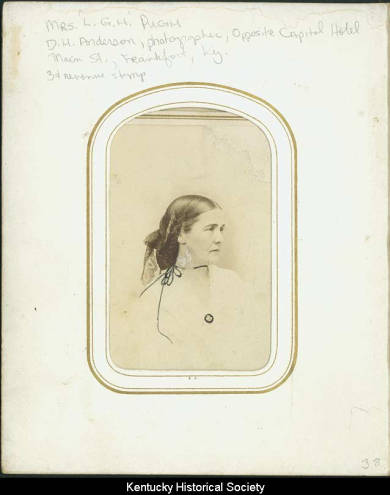While it is not surprising that 19th century European nations looked to the United States as a model for economic or political best practices, it is intriguing that the government of Bavaria should want to know the status of women’s property rights in Kentucky.
An unusual Civil War example of conversation between the Commonwealth and the sphere of foreign affairs appears in a letter from C. F. Hagedorn of the German state of Bavaria to Gov. James F. Robinson of Kentucky in 1863. In the letter, the consul requests that Robinson provide answers to two specific, enumerated questions about women’s rights in the state of Kentucky.
Consul General Hagedorn inquires as to the rights of married women to hold property and make decisions based on said property, as well as to what actions they can take to “act without approval to or consent of their husbands!” The docketing of the letter indicates that Robinson did respond to the consul’s inquiries, though his response cannot be found. Governor Robinson’s response to the Bavarian consul’s request to know more “in short about womens rights in your Commonwealth” would undoubtedly provide compelling insight concerning the agency of women in the 19th Century.
While CWGK does not have Governor Robinson’s response we have the initial correspondence. Go here to examine the letter:
http://discovery.civilwargovernors.org/document/KYR-0001-032-0007
It wasn’t until Josephine K. Henry successfully lobbied the Commonwealth of Kentucky for passage of the 1894 Married Woman’s Property Act that women were able to hold property after they were married.

